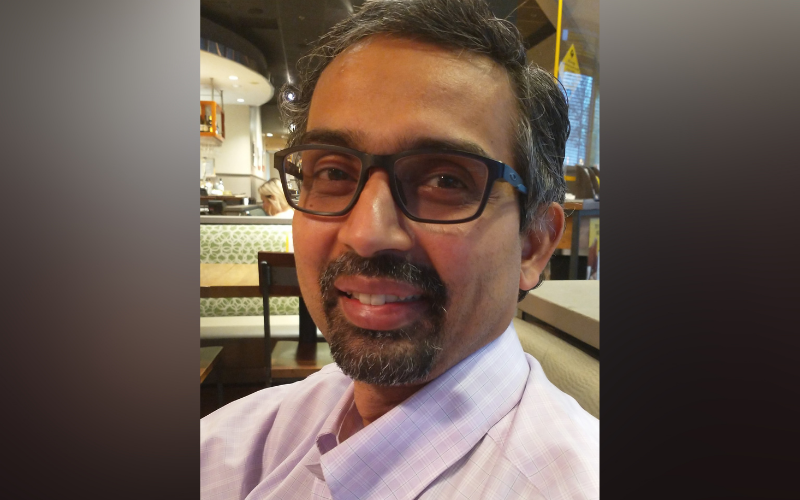B.E., Electronics and Communication, National Institute of Technology Karnataka
PhD, ECE, Duke Engineering
Tell us about your work at Microsoft. How long have you been in your current role, and what are your responsibilities?
I am a senior designer at Microsoft, in the quantum computing group, focusing on circuit design. I have been at Microsoft for about a year and a half, after nearly 15 years working as an engineer at Intel. My PhD work, advised by professor Hisham Massoud, was on quantum tunneling. That’s where I started, and it looks like I’m looping back!
My primary responsibilities include circuit technology innovation, memory circuit solutions for artificial intelligence (AI), evaluating technology scaling and PPA (power, performance, area) studies, among other things.
What’s your favorite thing about your job?
The innovation aspect is the best part of this job. Innovating new circuits and coming up with new ways of solving problems from a circuit standpoint is very interesting to me. It keeps the brain cells alive!
Sometimes, when I talk to students, I get the feeling that they think circuit design is dead. That’s simply not true. They think most improvements are coming from technology scaling, but that’s not happening as much anymore. It’s plateauing, and no longer giving us the kind of results we’ve seen in the past. So if you and all of your competition are using the same kind of core components, how do you make your product shine? The answer is circuit design. That’s where your “special sauce” comes in.
After a while, if you’re in very execution-oriented roles, it can become difficult to do things like write papers and seek patents, because of the pressures of deadlines and deliverables. I’m lucky to be at Microsoft, where you can be in a technical track and go very far, but still have the flexibility to create and come up with new ways of doing things.
Why did you choose Duke for your PhD study?
Duke is known for more than engineering. There’s the medical school, the law school—all sorts of other disciplines with strong reputations. In my mind, engineers need to have a broad view of things, so I thought it would be a good decision to go to a school where you get exposure to fields other than the one you’re focused on.
In my work now, I definitely see proof of the importance of thinking broadly. There are many pushes and pulls—what is the market doing? What are our competitors doing? There are financial considerations, legal considerations. Duke exposes you to all these disciplines and lets you see how all the aspects of business and industry come together.
"In my work now, I definitely see proof of the importance of thinking broadly. There are many pushes and pulls—what is the market doing? What are our competitors doing? There are financial considerations, legal considerations. Duke exposes you to all these disciplines and lets you see how all the aspects of business and industry come together."
For example, I worked on a Braille reader while at Duke. For that project, the team spent time at the Duke Eye Center, working with some people with visual impairments who could test out our equipment for us. They and the doctors gave us feedback. We bounced ideas off of some people in Fuqua when we were making a business plan. We had access to all this expertise, and it was all within walking distance. That’s a huge selling point for a graduate program.
If you’re considering Duke, know that it’s a wonderful environment. You can collaborate widely and see a good cross-section of research, beyond electrical and computer engineering. And the faculty are world class.
What advice do you have for students who are considering pursuing a PhD?
First, ask yourself: do you want to do this? You need to know that it’s a long, hard slog. So, you really must like what you’re working on and you must be prepared to take quite a few blows along the way. The upside is, earning a PhD will really toughen you up. In the workplace you will differentiate yourself as someone who is not intimidated by a challenge. You will gain confidence in your own abilities. You will have mettle and know you can do difficult things. I’ve seen that to be generally true of the PhDs I work with—they keep at it. They don’t give up at the first sign of trouble. That’s very important in our industry.

